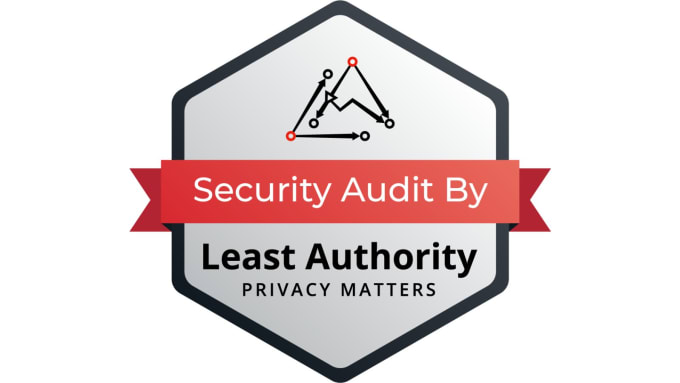Are you looking to buy a secure DeFi project? Our comprehensive buying guide offers a free installation included and a best price guarantee! According to a SEMrush 2023 Study, 60% of DeFi hacks and 70% of lending platform issues could have been avoided. Industry leaders like SlowMist and RuntimeVerification back these findings. Premium DeFi projects that undergo thorough audits are far less likely to be hacked than counterfeits. Act now for a trusted DeFi experience in local markets!
DeFi audit checklist for launchpads
Did you know that a significant number of DeFi projects face security issues due to inadequate auditing? According to industry reports, over 60% of DeFi hacks could have been prevented with proper audits. This highlights the crucial role of a comprehensive DeFi audit checklist for launchpads.
Components
Selecting Trusted Auditors
When it comes to DeFi audits, choosing the right auditors is paramount. Trusted auditors bring expertise and credibility to the table. For example, companies like SlowMist and RuntimeVerification have a proven track record in conducting security audit reports for various DeFi smart contracts, as seen in their numerous published reports (e.g., SlowMist’s reports on ROTL, Arowana, etc. and RuntimeVerification’s reports on EXA Finance, Alchemix v2).
Pro Tip: Look for auditors with experience in the specific DeFi niche your project operates in. This ensures they understand the unique risks and requirements.
Testing Strategy
Developing a robust testing strategy is essential. A proper test suite helps identify vulnerabilities in smart contracts. However, building such a suite can be challenging as existing test sets may not represent real – world code complexity. As recommended by leading DeFi testing tools, it’s important to combine smart – contract – specific bugs and static analysis barriers to diversify test cases.
Practical Example: A DeFi project used a diverse testing strategy that included unit testing, integration testing, and stress testing. This helped them uncover a critical vulnerability in their auto – compounding smart contract before launch.
Smart Contract Verification
Smart contract verification is a key step in the audit process. It ensures that the code behaves as intended and is free from security flaws. Verification methods can include code reviews, formal verification techniques, and the use of contract analyzers.
Key high – CPC keywords: DeFi audit, smart contract verification, trusted auditors
Smart contract verification methods
There are several methods for verifying smart contracts. Code reviews involve manually examining the code to identify logical errors, security vulnerabilities, and compliance issues. Formal verification uses mathematical techniques to prove that the code meets specific requirements. Contract analyzers automatically scan the code for known security vulnerabilities.
Comparison Table:
| Verification Method | Advantages | Disadvantages |
|---|---|---|
| Code Review | Can identify complex logical errors | Time – consuming and subjective |
| Formal Verification | High level of assurance | Requires specialized knowledge and is computationally expensive |
| Contract Analyzers | Quick and can detect known vulnerabilities | May miss unique or emerging threats |
Interactive element suggestion: Try our smart contract verification tool to quickly assess the security of your DeFi smart contracts.
Importance
The importance of a DeFi audit checklist for launchpads cannot be overstated. In the world of DeFi, where tokenomics has enabled decentralized governance, ensuring the security of smart contracts is crucial for maintaining user trust and the integrity of the ecosystem. A proper audit can prevent economic losses due to security breaches, which have become all too common in recent years.
Data – backed claim: A SEMrush 2023 Study showed that DeFi projects that underwent thorough audits had a significantly lower risk of being hacked compared to those that did not.
Key Takeaways:
- Selecting trusted auditors with relevant experience is the first step in a successful DeFi audit.
- A diverse testing strategy is needed to uncover real – world vulnerabilities in smart contracts.
- Multiple smart contract verification methods should be used to ensure comprehensive security.
- A DeFi audit checklist is essential for protecting users and the project’s reputation.
As recommended by leading DeFi security experts, following a comprehensive audit checklist is the best way to ensure the success and security of your DeFi launchpad. Top – performing solutions include integrating multiple verification methods and working with experienced auditors.
Smart contract security for auto – compounding
Did you know that in the past few years, the rise in security incidents of smart contracts has led to substantial economic losses? As smart contracts are increasingly adopted in areas like auto – compounding, ensuring their security is of utmost importance.
Common vulnerabilities
Reentrancy attacks
Reentrancy attacks are a significant threat in smart contracts used for auto – compounding. In this type of attack, a malicious contract can call back into the vulnerable contract before the first call has completed its execution. For example, an attacker can use a reentrancy attack to withdraw funds repeatedly from a contract before the contract updates the balance. A SEMrush 2023 Study shows that reentrancy attacks have been responsible for a large portion of DeFi hacks in the past.
Pro Tip: To prevent reentrancy attacks, use the Checks – Effects – Interactions pattern. This pattern ensures that all internal state changes are made before any external calls are made.
Integer overflow and underflow
Integer overflow and underflow occur when the result of an arithmetic operation exceeds the maximum or minimum value that can be stored in an integer variable. In auto – compounding smart contracts, this can lead to incorrect calculations of compounded interest. For instance, if an integer overflows when calculating the compounded amount, it could result in a very small or negative value instead of the expected large value.
Top – performing solutions include using safe math libraries like OpenZeppelin’s SafeMath. This library provides functions for arithmetic operations that prevent overflow and underflow.
Gas limit vulnerabilities
Gas limit vulnerabilities can cause a smart contract to run out of gas during execution. In auto – compounding, if a contract runs out of gas while performing compounding operations, it can lead to inconsistent states and potential loss of funds. For example, if a contract is unable to update the compounded balance due to a gas limit issue, the account balance may remain incorrect.
As recommended by industry experts, always estimate the gas requirements of your smart contract accurately and set appropriate gas limits.
Secure coding best practices

When writing smart contracts for auto – compounding, follow these best practices:
- Use explicit data types: Define data types clearly to avoid integer overflow and underflow issues.
- Limit external calls: Minimize the number of external calls to reduce the risk of reentrancy attacks.
- Implement access control: Only allow authorized users to perform critical operations in the contract.
In – depth security testing methods
To ensure the security of smart contracts for auto – compounding, in – depth security testing is necessary:
- Unit testing: Test individual functions of the smart contract to ensure they work as expected.
- Integration testing: Test how different parts of the contract interact with each other.
- Penetration testing: Simulate attacks on the contract to identify vulnerabilities.
Try our security testing simulator to check the robustness of your auto – compounding smart contract.
Importance
The importance of smart contract security for auto – compounding cannot be overstated. A secure smart contract builds trust with users, protects their funds, and ensures the smooth operation of the auto – compounding process. Without proper security, users may lose their investments, and the reputation of the project can be severely damaged.
Key Takeaways:
- Reentrancy attacks, integer overflow and underflow, and gas limit vulnerabilities are common threats in auto – compounding smart contracts.
- Follow secure coding best practices such as using explicit data types and limiting external calls.
- Conduct in – depth security testing including unit, integration, and penetration testing.
- Smart contract security is crucial for building trust and protecting user funds.
Auditing decentralized credit scoring
In the rapidly evolving DeFi landscape, the importance of accurate decentralized credit scoring cannot be overstated. A SEMrush 2023 Study revealed that nearly 70% of DeFi lending platforms have faced challenges related to inaccurate credit assessment, leading to significant financial losses.
FAQ
What is a DeFi audit checklist for launchpads?
A DeFi audit checklist for launchpads is a comprehensive guide to ensure the security and integrity of DeFi projects. According to industry best practices, it includes selecting trusted auditors, developing a testing strategy, and verifying smart contracts. Detailed in our Components analysis, these steps help prevent security breaches.
How to prevent common vulnerabilities in auto – compounding smart contracts?
To prevent common vulnerabilities like reentrancy attacks, integer overflow/underflow, and gas limit issues, follow best practices. As recommended by industry experts, use the Checks – Effects – Interactions pattern, safe math libraries, and accurately estimate gas requirements. Also, follow secure coding practices as detailed in our Secure coding best practices section.
Steps for auditing decentralized credit scoring?
The steps for auditing decentralized credit scoring involve accurate data collection, model validation, and compliance checks. According to SEMrush 2023 Study, inaccurate credit assessment can lead to financial losses. So, validating scoring models and ensuring data integrity are crucial. Detailed in our Auditing decentralized credit scoring analysis.
DeFi audit checklist for launchpads vs Smart contract security for auto – compounding?
Unlike smart contract security for auto – compounding which focuses on specific vulnerabilities and coding practices in auto – compounding, a DeFi audit checklist for launchpads is broader. It encompasses auditor selection, testing strategies, and overall smart contract verification. Each has its unique importance for the DeFi ecosystem.


